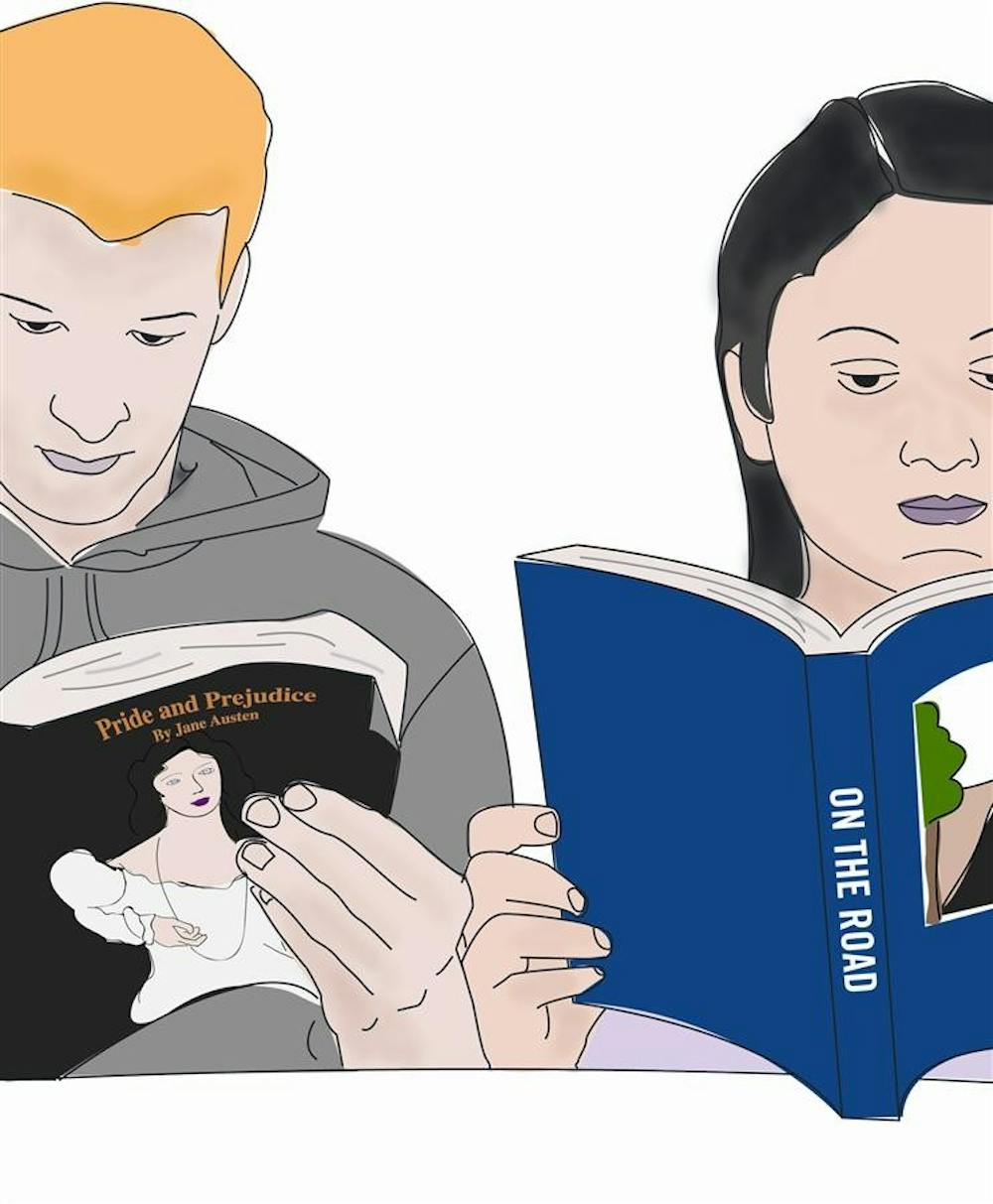People succumb to literary stereotypes on a daily basis.
Men are portrayed as cringing at the very thought of reading about family, love and marriage, while women are seen as fainting at the very sight of blood and gore in war and action novels. However, professors and students agree that stereotypes in all literary mediums don’t fit the realities of society.
“Literary stereotypes always reflect their cultural and literary moment in history,” English professor Scott Herring said. “In some instances, they may even help confine their literature and moment.”
Literary stereotypes transcend time and space. Even when watching the Food Network, Herring said the media portrays women and men as existing in different spaces. We see women like Paula Deen and Rachael Ray in a kitchen setting, he said, while male chefs journey around the world with exotic cuisines.
Herring said there are many examples of literary stereotypes that have remained statically present throughout American literature. For example, beginning in the 19th century and continuing into the present day, the stereotype of the female African American “mammy” figure has been used in various literary mediums to confirm stereotypes.
“Mammy is supportive to a white family, desexualized, and serves as a mother figure,” Herring said. “You can also apply this up to the present day and see it in the upcoming film ‘Precious’ and throughout cable TV.”
The development of one-dimensional characters like Mammy creates a tension between reality and works like “Gone With the Wind,” which preserves in time something that never truly existed. They feed into other literary stereotypes and
create divisions within the story and consumers of literary mediums. Gender and class determine, for some, the books, TV shows and movies they choose to consume.
“I think there is an overlap,” sophomore Jacob Walker said. “You are not going to find as many women into books with blood and gore, but it’s not that cut and dry.”
He said that he reads more male authors because they are more accessible to him, but that men and women’s taste in reading varies from person to person.
Most readers do not exist in a vacuum, and as such they have the power to exist outside these stereotypes. Some genres overlap, while concepts like “chick lit” and “man cave” clearly focus on one gender for the sake of advertisement.
“Chick lit is clearly not meant for men to read it. It exploits the system,” said Michael Adams, the director of undergraduate studies for the English department. “They are definitely trying to appeal to the female demographic. They match up ads to the demographic to make money from a gendered position.”
He said these popular culture divisions between what women and men “should” like leads to the development of the term “guilty pleasure.”
“It is our social attitude that creates guilty pleasure,” Adams said.
“To be conditioned into a gender convention is largely a conscious and unconscious process,” Herring said.
He said that parents, schools, churches and a variety of media sources enable this phenomenon.
“We are bombarded with images of what it is to be a ‘normal’ male or female,” Herring said. “It becomes the air that you breathe.”
Though these gender stereotypes might exist in popular realms of culture, Adams believes the deeper and more real division lies between reading classical or popular literature for pleasure.
“Canonical literature transcends those notions and appeals to readers able to look over these conceptions,” he said. “They don’t mean to sell things to women.”
He said he believes that people that choose to be confined to literary stereotypes do so because they want to be passively entertained. One’s entire outlook can be defined by the way they choose to engage with society.
“If you want to stay in a box and you don’t want to get out of your box, then you don’t have to read books from outside the box,” Adams said. “They are going into the reading with the presumption that ‘Fight Club’ is more appealing to men than ‘Pride and Prejudice.’”
Breaking books out of their box
Literary stereotypes don't fit reality

Get stories like this in your inbox
Subscribe





